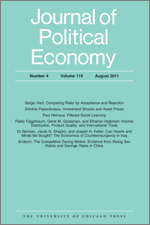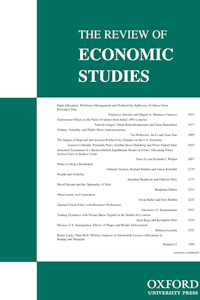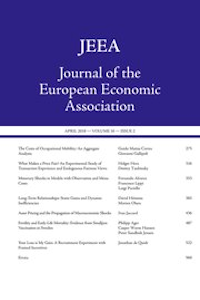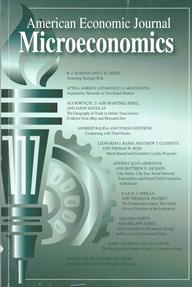
Katsuyuki, S. and Chadha, J.S.
Inventories and the stockout constraint in general equilibrium
The B.E. Journal of Macroeconomics
Vol. 14(1) pp. 27-74 (2014)
Abstract: We study the implications of a stockout constraint in a dynamic general equilibrium model, which can explain both standard business cycle and inventory facts. Under this constraint, inventories and demand are complements in generating sales, and hence the optimal level of inventories increases in expected demand. We show that the inventory to sales ratio is both persistent and countercyclical because the cost of carrying inventories is mainly determined by the interest rate. We use this model to disentangle output and sales, by matching the key inventory moments, and find that preference and productivity shocks are equally important in the data. Finally, we assess whether improvements in inventory management can explain the Great Moderation. We find that, although improvements in inventory management can reduce the need for inventory holdings, which decreases output volatility relative to sales volatility, lower levels of inventories actually increases sales volatility. Because these two effects offset each other, a change in inventory management does not change output volatility to any great extent.
Keywords: Dynamic stochastic general equilibrium, Great moderation, Inventory cycle, Inventory investment, Stockout constraint
JEL Codes: E13, E20, E32
Author links:
Publisher's Link: http://www.degruyter.com/view/j/bejm.2014.14.issue-1/bejm-2012-0138/bejm-2012-0138.xml ![]()




